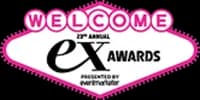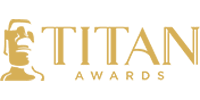Why The Words You Use — Especially Pronouns — May Be Your Most Underutilized Leadership Tool
When Satya Nadella took over as CEO of Microsoft, he ushered in a new era of empathy and collaboration. One subtle but powerful signal of this shift? His pronouns. Where previous leaders said “me,” Nadella said “we.” And the results speak for themselves: a refreshed culture, skyrocketing employee engagement, and a $3 trillion valuation.
In his book Give and Take, organizational psychologist Adam Grant outlines a powerful framework: Leaders tend to be givers, takers, or matchers. Takers focus on personal gain, matchers expect equal exchange, and givers lead by serving others. Grant's research shows that givers — those who prioritize “we” over “me” — are the most likely to succeed over the long term.
Yet, more than a decade after Give and Take was published, the problem of self-centered leadership persists. Despite waves of leadership development and efforts to rehumanize the workplace, Gallup reports that 87% of the world's employees remain disengaged. Much of that disengagement stems from poor communication and unskilled leadership.
The solution might be hiding in plain sight: language. Specifically, the words leaders use daily in emails, memos, meetings, and more.

The Hidden Power of Pronouns
You don't need a Gallup survey to find out whether you're fostering inclusion or inadvertently distancing your team. Just re-read your last message to your team. Did it begin with “I have decided” or “We have the opportunity”? Are you framing ideas as top-down directives or collaborative missions?
Dr. James Pennebaker, a psychologist at the University of Texas at Austin, has spent decades analyzing the subtle clues language provides about personality and power. His research, powered by a tool called Linguistic Inquiry and Word Count (LIWC), reveals that higher-status individuals — people who occupy positions of greater power, influence, or authority within an organization — use fewer first-person singular pronouns (“I,” “me,” “my,” “mine,” and “myself”) and more first-person plural pronouns (“we,” “us,” “our,” “ours,” and “ourselves”).
Across five experiments published in The Journal of Language and Social Psychology, Pennebaker and his colleagues found that:
- Lower-status individuals used “I” in approximately 6-7% of their speech.
- Higher-status individuals used “I” closer to 4-5%.
- In contrast, “we” showed up in 2-3% of high-status speech, versus 1-2% for lower-status participants.
This shift isn't just a signal of human-centric leadership — it's a mechanism. As Pennebaker summarized, “When people rise in status, they literally stop talking about themselves as much.”
The Organizational Impact of “We”
Does this people-first linguistic shift translate into real-world results? It turns out that putting people first is a game-changer.
Research published in The Leadership Quarterly found that leaders who used more collective pronouns created more collaborative and psychologically safe environments. Employees felt valued, spoke up more often, and contributed more proactively.
Another large-scale study, analyzing 378 CEO letters from top German companies, found a strong link between the use of “we” and key organizational outcomes—like return on assets and productivity.
Interestingly, a study analyzing 94,263 quarterly earnings conference calls found that using “I” strategically — especially when delivering bad news — can be effective. Investors responded more favorably when CEOs used “I” to take personal responsibility for adverse outcomes. It wasn't the use of “I” itself that mattered, but whether it communicated accountability.
Words Shape Worlds
Language is one of the most consistent and controllable tools leaders have, yet it's often overlooked. Your word choices, especially function words like pronouns, reveal how you see yourself in relation to others. They show whether you're leading alone or with your team.
As the leadership zeitgeist moves from the age of the “great man” to the era of the “great many,” this subtle shift — from “me” to “we” — is more than semantics. It's culture. It's strategy. It's leadership.
From Me to We
So here's the challenge: Over the next week, audit your language. In emails, in memos, and in meetings, ask yourself — am I signaling inclusion, humility, and shared purpose? Or am I accidentally reinforcing a culture of disconnection?
The leaders of tomorrow are already shifting their language. If you want to lead the future, start with the smallest, most powerful word: we.
About Hamza Khan
Khan is a multi-award-winning entrepreneur, bestselling author and world-renowned keynote speaker whose TEDx talk “Stop Managing, Start Leading” has been viewed over two million times. He has spoken on various global stages, including the World Youth Forum, and his clients have included some of the world's most dynamic companies and organizations, such as Microsoft, PepsiCo, LinkedIn, Deloitte, Salesforce, TikTok, and hundreds of colleges and universities. These leading organizations trust Khan to inspire modern leadership, unleash purposeful productivity, transcend burnout culture, and embrace constant change.
Featured Articles
January 21, 2025
From Arianna Huffington to Brené Brown: The Uniquely Fearless Speakers at Workhuman Live
What makes a conference unforgettable? Is it the captivating keynotes, the electric atmosphere, or...Read more
February 4, 2025
How Workhuman Live Walks the Talk in Health and Benefits Leadership Conferences
Let's be honest - most conferences don't exactly scream wellbeing. Especially health and benefits...Read more
February 4, 2025
Making the Case for HR Innovation: Redefining the Role of HR in a Changing World
Change can be uncomfortable. Let's just get that out there. But here's the thing: it's also...Read more







































Experience HR's most awarded conference
Register for Workhuman Live today to join a movement like no other.